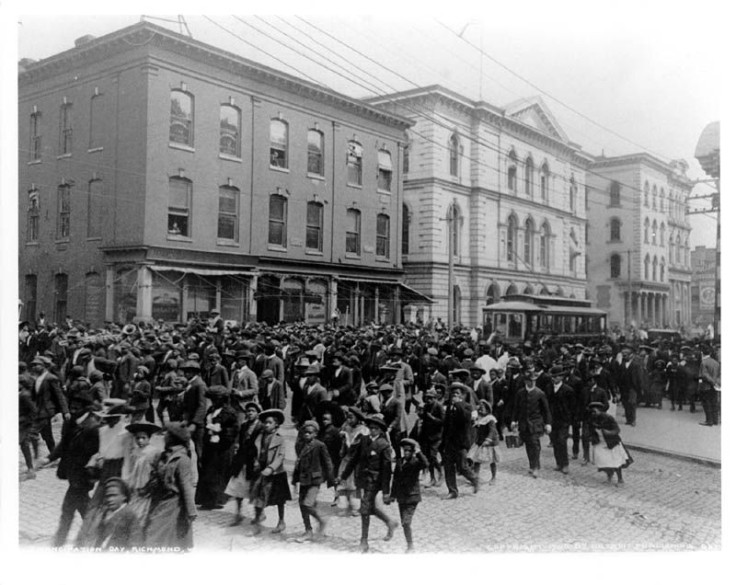What Is Juneteenth? 7 Surprising Facts About The History Of Black Independence Day

Few events in the U.S. have changed the course of history as dramatically as the day President Abraham Lincoln declared that all slaves would be set free. Juneteenth, also known as Black Independence Day, falls on June 19 and marks the day hundreds of thousands of slaves in Texas, a state that was largely isolated from the Civil War and was therefore able to continue its practice of slavery with little intervention, were declared free, two years after the Emancipation Proclamation took effect 152 years ago.
The holiday is not federally recognized but is celebrated in many localities. Twenty-five states honor Juneteenth and its traditions, including readings of the Emancipation Proclamation and of writings by prominent African-American authors such as Maya Angelou. Some cities host parades, cookouts and street fairs.
Union Gen. Gordon Granger, following orders from the federal government to occupy Texas and enforce the Emancipation Proclamation, arrived at Galveston Island on June 18, 1865 -- two months after Confederate Gen. Robert E. Lee surrendered in Virginia. A day later, he announced the emancipation of the state’s slaves.
“The people of Texas are informed that, in accordance with a proclamation from the Executive of the United States, all slaves are free,” his statement read. “This involves an absolute equality of personal rights and rights of property between former masters and slaves, and the connection heretofore existing between them becomes that between employer and hired labor.”
Here are seven surprising facts about Juneteenth, or Black Independence Day.
1. Emancipation wasn’t embraced right away. Lincoln issued the Emancipation Proclamation, in a preliminary version on Sept. 22, 1862, and finally on Jan. 1, 1863, but it took nearly three years before America’s slaves were completely freed. In Texas, where there were few Union troops to enforce the executive order, the law did not take effect until June 19, 1865.
2. Some slaves stayed behind to continue working plantations. Although they were freed, slaves hardly had ways to earn a living. Some remained on plantations to continue working while others left to find family members in other states.
3. The name Juneteenth is a combination of the words “June” and “nineteenth.” It was first used in 1903.
4. The holiday originally fell on Jan. 1, the anniversary of the proclamation. However, there were conflicts of interest because it coincided with New Year’s Day, as well as the establishing of several other laws. It was eventually moved to June 19.
5. Strawberry soda-pop became synonymous with early Juneteenth celebrations. Strawberry pie also became a staple at Juneteenth festivities.
6. Juneteenth celebrations were often met with resistance. Many cities and towns that opposed emancipation tried to bar groups from using public spaces for their activities.
7. As many as half a million slaves escaped slavery by fleeing across Union lines during the war. That was out of an estimated total of about 3.9 million U.S. slaves.
© Copyright IBTimes 2024. All rights reserved.






















